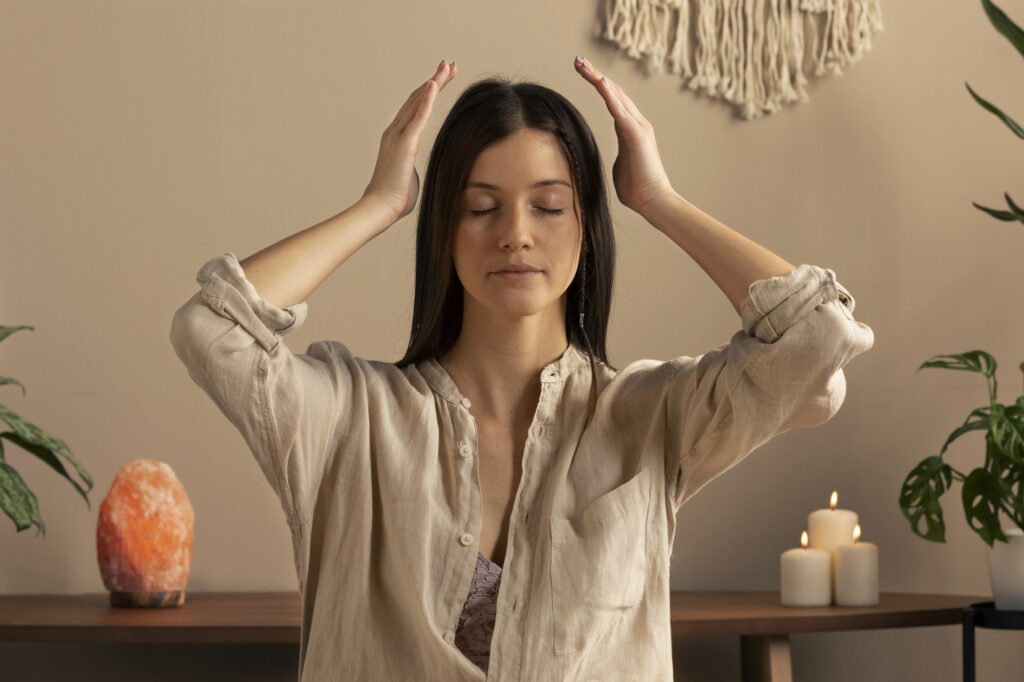Introduction
Living with migraines can be incredibly challenging, but with the right coping strategies and self-care tips, it becomes much more manageable. This article explores various techniques that individuals with migraines can implement to alleviate symptoms and improve their quality of life.
What is a Migraine?
A migraine is a neurological condition characterized by recurring moderate to severe headaches, often accompanied by other symptoms such as nausea, sensitivity to light and sound, and visual disturbances. Unlike regular headaches, migraines can significantly impact a person’s daily life, making it difficult to carry out normal activities.

Migraines are thought to be caused by a combination of genetic and environmental factors. While the exact cause is still unknown, it is believed that abnormal brain activity and changes in the levels of certain chemicals in the brain play a role in triggering migraines.
Migraines can be classified into two main types: migraine with aura and migraine without aura. Migraine with aura refers to migraines that are preceded by warning signs, such as visual disturbances or tingling sensations. Migraine without aura, on the other hand, does not have any preceding warning signs.
Common Triggers for Migraines
Identifying and avoiding triggers is an essential step in managing migraines. While triggers can vary from person to person, some common triggers include:
- Stress: Stress is a significant trigger for many migraine sufferers. When we experience stress, our bodies release hormones that can cause blood vessels in the brain to constrict, leading to migraines.
- Dietary Factors: Certain foods and drinks can trigger migraines in susceptible individuals. Common dietary triggers include caffeine, alcohol, chocolate, aged cheeses, and foods containing monosodium glutamate (MSG).
- Hormonal Changes: Many women experience migraines associated with hormonal changes, such as during menstruation, pregnancy, or menopause.
- Sensory Stimuli: Bright lights, loud noises, and strong smells can trigger migraines in some individuals.
- Sleep Irregularities: Both too little sleep and excessive sleep can trigger migraines. It’s important to establish a consistent sleep routine and prioritize getting enough rest.

By identifying your personal triggers and making lifestyle adjustments to avoid them, you can significantly reduce the frequency and severity of your migraines.
Understanding Migraine Symptoms
Migraines present a wide range of symptoms that can vary from person to person. The most common symptoms include:
- Headaches: Migraine headaches are typically characterized by intense, throbbing pain on one side of the head. The pain can last for hours or even days.
- Nausea and Vomiting: Many migraine sufferers experience nausea and vomiting during an attack.
- Sensitivity to Light and Sound: Migraines can make individuals highly sensitive to light and sound, often seeking dark, quiet environments for relief.
- Aura: Some individuals may experience an aura before the onset of a migraine. Auras are usually visual disturbances, such as seeing flashing lights or zigzag lines.
- Fatigue: Migraines can leave individuals feeling exhausted and drained, even after the pain subsides.
It’s important to keep track of your symptoms and communicate them to your healthcare provider for proper diagnosis and treatment.
Coping Strategies for Managing Migraines
Managing migraines involves a combination of strategies to reduce the frequency and severity of attacks. Here are some effective coping strategies to consider:
- Stress Reduction: Stress is a common trigger for migraines, so incorporating stress-reduction techniques into your daily routine can be beneficial. Practices such as yoga, meditation, deep breathing exercises, and progressive muscle relaxation can help manage stress levels and reduce the likelihood of migraines.
- Biofeedback: Biofeedback is a technique that helps individuals gain control over their body’s responses to stress. By using electronic devices that provide real-time feedback on physiological processes such as heart rate and muscle tension, individuals can learn to recognize and control physical responses that may trigger migraines.
- Cognitive Behavioral Therapy (CBT): CBT is a type of therapy that helps individuals identify and change negative thought patterns and behaviors. It can be particularly helpful for individuals who experience migraines due to stress or anxiety.
- Acupuncture: Acupuncture, an ancient Chinese practice, involves inserting thin needles into specific points on the body to restore balance and promote healing. Some studies have shown that acupuncture can be an effective treatment for migraines.
- Medication: In some cases, medication may be necessary to manage migraines. There are various types of medications available, including pain relievers, triptans, and preventive medications that can help reduce the frequency and severity of attacks.

By implementing these coping strategies, you can better manage your migraines and improve your overall quality of life.
Self-Care Tips for Preventing Migraines
In addition to coping strategies, incorporating self-care practices into your daily routine can help prevent migraines. Here are some self-care tips to consider:
- Establish a Regular Sleep Routine: Maintaining a consistent sleep schedule can help regulate your body’s internal clock and reduce the likelihood of migraines. Aim for seven to eight hours of quality sleep each night.
- Exercise Regularly: Engaging in regular physical activity can help reduce the frequency and severity of migraines. Exercise promotes the release of endorphins, which are natural painkillers and mood boosters.
- Maintain a Healthy Diet: Be mindful of your diet and avoid known trigger foods. Incorporate a variety of fruits, vegetables, whole grains, and lean proteins into your meals. Stay hydrated by drinking plenty of water throughout the day.
- Practice Mindfulness: Mindfulness practices, such as yoga and meditation, can help reduce stress and promote relaxation. Set aside some time each day to engage in these activities and focus on the present moment.
- Avoid Excessive Caffeine and Alcohol: Both caffeine and alcohol can trigger migraines in some individuals. Limit your consumption of these substances or avoid them altogether if you notice they worsen your symptoms.
Natural Remedies for Migraine Relief
Natural remedies, such as essential oils and herbal supplements, have gained popularity as alternative treatments for migraines. While the effectiveness of these remedies may vary from person to person, some options have shown promising results. Here are a few natural remedies to consider:
- Peppermint Oil: Peppermint oil has been used for centuries for its soothing properties. Applying diluted peppermint oil to the temples or inhaling its aroma may provide relief from migraines.
- Lavender Oil: Lavender oil is known for its calming and relaxing effects. Massaging diluted lavender oil onto the temples or using it in a diffuser may help alleviate migraine symptoms.
- Butterbur: Butterbur is an herb that has been used traditionally to treat migraines. Some studies have shown that butterbur supplements can reduce the frequency and intensity of migraines.
- Feverfew: Feverfew is another herb that has been used for centuries to treat migraines. It is believed to reduce inflammation and prevent the constriction of blood vessels in the brain.
- Magnesium: Magnesium is a mineral that plays a crucial role in various bodily functions. Some studies suggest that magnesium supplements may help prevent migraines, particularly in individuals with magnesium deficiency.
Lifestyle Changes to Reduce Migraine Frequency
In addition to coping strategies and self-care practices, making certain lifestyle changes can help reduce the frequency of migraines. Here are some lifestyle changes to consider:
- Maintain a Regular Schedule: Establishing a regular routine can help regulate your body’s natural rhythms and reduce the likelihood of migraines. Try to wake up and go to bed at the same time each day, even on weekends.
- Avoid Skipping Meals: Skipping meals can trigger migraines in some individuals. Make sure to eat regular, balanced meals throughout the day to keep your blood sugar levels stable.
- Stay Hydrated: Dehydration can contribute to migraines, so it’s important to drink enough water throughout the day. Aim to drink at least eight glasses of water daily.
- Limit Screen Time: Excessive screen time, whether from computers, smartphones, or TVs, can strain your eyes and potentially trigger migraines. Take regular breaks and practice the 20-20-20 rule – every 20 minutes, look at something 20 feet away for 20 seconds.
- Manage Stress: Chronic stress can increase the frequency and severity of migraines. Find healthy outlets to manage stress, such as engaging in hobbies, spending time with loved ones, or practicing relaxation techniques.
Seeking Professional Help for Migraines

While self-care practices and lifestyle changes can be effective in managing migraines for many individuals, it’s essential to consult with a healthcare professional for a comprehensive evaluation and personalized treatment plan. A healthcare provider can help diagnose your migraines, identify potential triggers, and recommend appropriate treatment options.
Depending on the severity and frequency of your migraines, your healthcare provider may prescribe medication, suggest alternative therapies, or refer you to a specialist, such as a neurologist or headache specialist.
Support Groups and Resources for Migraine Sufferers
Connecting with others who understand your experiences can be incredibly valuable when living with migraines. Support groups and online communities provide a safe space to share your journey, gain insights from others, and find emotional support. These groups can also be a great source of information about treatment options, coping strategies, and the latest research in the field.
In addition to support groups, there are numerous resources available for migraine sufferers. Books, websites, podcasts, and educational materials can provide valuable information and empower you to take an active role in managing your migraines.
Conclusion
Living with migraines can be challenging, but by implementing coping strategies, practicing self-care, and seeking professional help when needed, you can live a fulfilling life despite this condition.
Identify your triggers, manage stress, prioritize self-care practices, and consider incorporating natural remedies that have shown promising results. Make lifestyle changes that support overall well-being and reduce the frequency of migraines. Connect with others who understand your journey and take advantage of available resources and support.